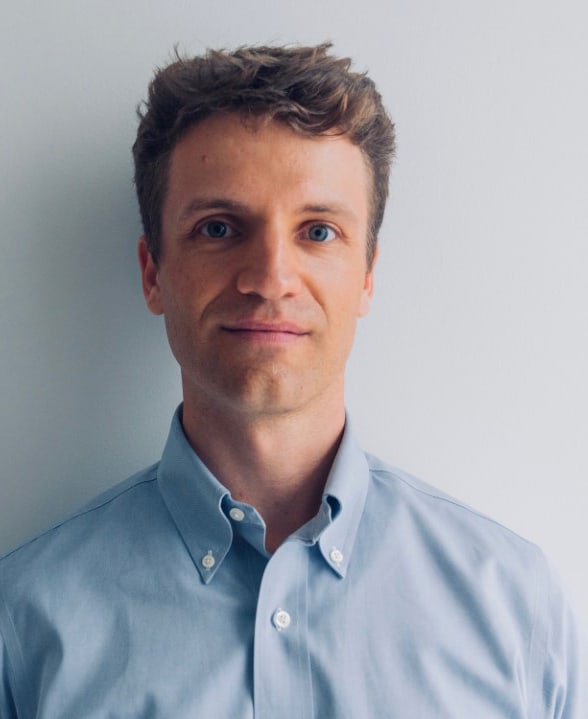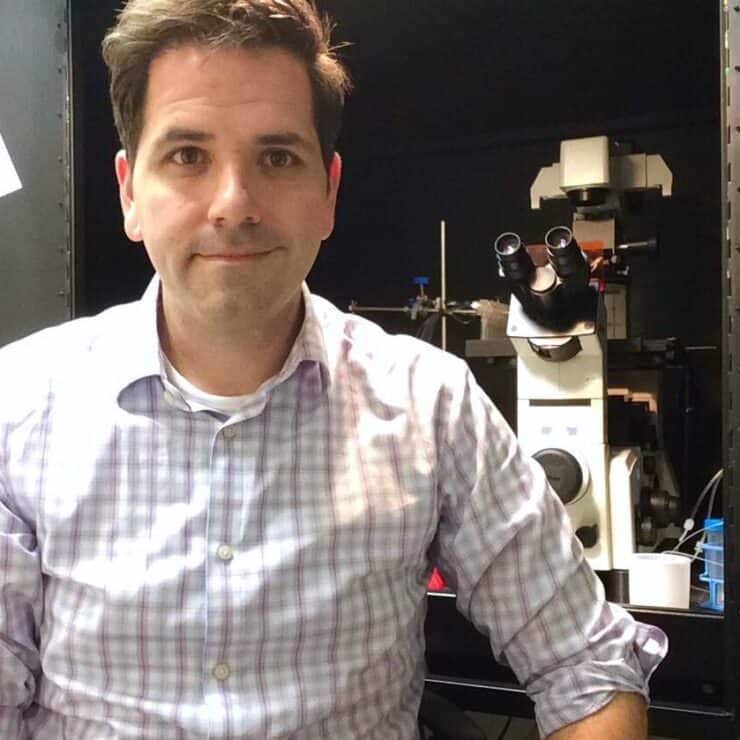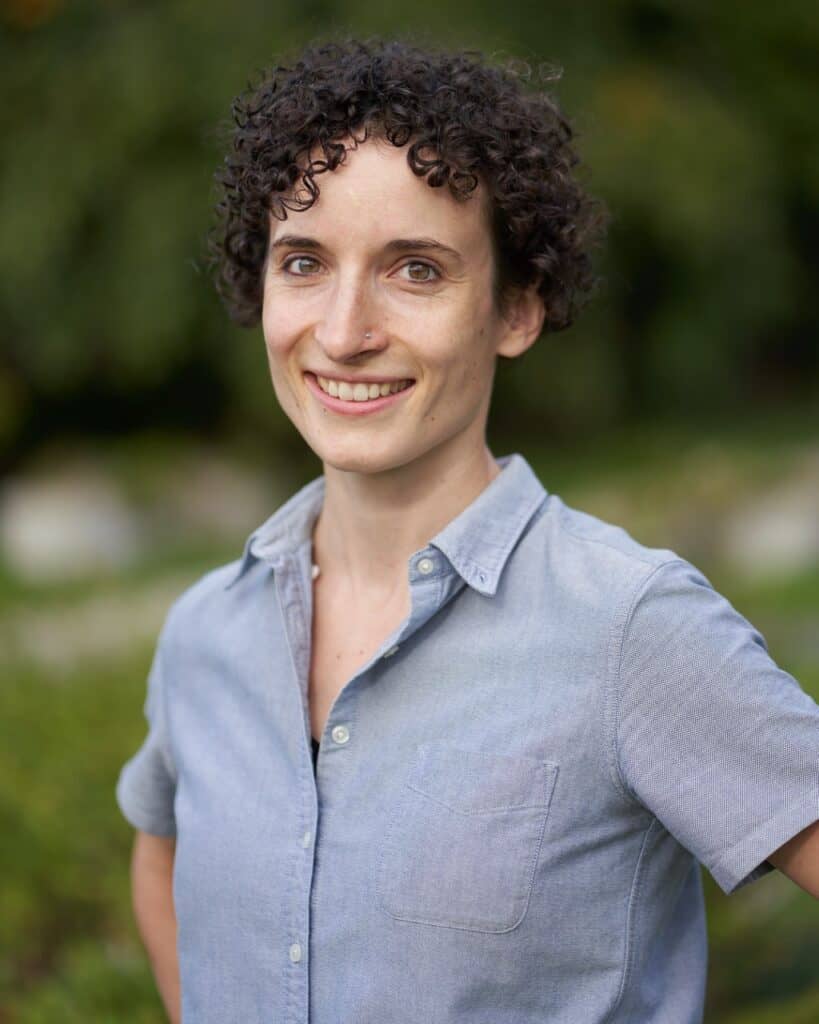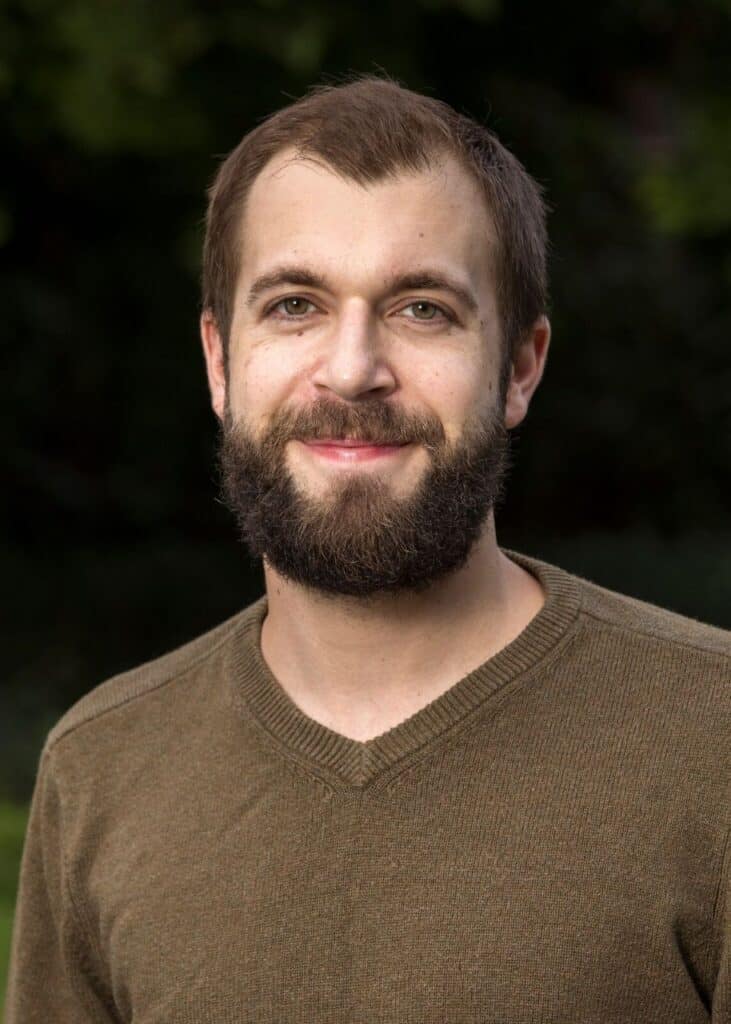Trinity Welcomes Five New Tenure-Track Faculty Members
Five tenure-track faculty members began new appointments at Trinity College on July 1, 2020, bringing with them a breadth of expertise and research interests to campus.
The five individuals are: Peter H. Bent, assistant professor of economics; Chitra Jogani, assistant professor of economics and international studies; Michael C. Puljung, assistant professor of neuroscience and chemistry; Anna Terwiel, assistant professor of political science; and Benjamin J. Toscano, assistant professor of biology.
Acting Dean of Faculty and Vice President for Academic Affairs Sonia Cardenas said, “This year’s new assistant professors come to Trinity at a historic moment. It is with great enthusiasm and hope that we welcome them. Across their diverse fields, they bring with them a world of talent and promise, both in teaching and research. We look forward to supporting their myriad contributions and trajectories as they inspire a new generation of Trinity students.”
Peter H. Bent, Assistant Professor of Economics

Peter H. Bent earned an undergraduate degree in liberal arts from Evergreen State College, an M.A. in economics from the University of New Hampshire, an M.Sc. in economic history from the London School of Economics, and a Ph.D. in economics from the University of Massachusetts Amherst. His broad study of the liberal arts as an undergraduate influences his teaching of economics, through encouraging students to critically engage with what they are learning and to appreciate the historical, social, and political aspects of economics.
This fall, Bent will teach “Macroeconomic Theory,” which will dive into topics such as financial crises, economic growth, unemployment, and labor markets. He said, “Teaching and researching this area of economics is very stimulating for me personally and also practical for trying to understand the world we live in.” Bent said his experiences abroad have helped him develop a wider perspective of what economics is and how it can be taught.
This summer, amid the COVID-19 pandemic, Bent has been finalizing two projects that deal with the timely question of how economies recover from major financial crises. “I have been orienting my research historically, looking roughly at the 1870–1913 period and how economies recovered from financial crises back then,” said Bent. He added that while his research looks into past economies, the questions he tackles are tied to the world we live in today, especially during the current pandemic-fueled economic crisis. Bent is curious to see how economies can start to reopen while balancing the health concerns posed by COVID-19.
Bent said he is excited to be a part of a liberal arts environment and appreciates the intellectual connections that can be made within his department and across disciplines. “The Economics Department itself is such a great place to be at Trinity,” he said. “Being able to teach in small classroom environments where you are actually having conversations with your students is especially rewarding.” Bent said that he is looking forward to creating intellectual connections with his students.
Chitra Jogani, Assistant Professor of Economics and International Studies

Chitra Jogani earned a bachelor’s degree in economics from Presidency College in India, a master’s in quantitative economics from the Indian Statistical Institute, and a Ph.D. in economics from the University of Illinois at Urbana-Champaign.
Jogani specializes in developmental economics and political economy and extends her studies into environmental and labor economics. Her research uses theoretical and empirical methods to answer policy-relevant questions. She said growing up and studying in India introduced her to the economy of the largest democracy and a developing country, which sparked in her the desire to find solutions to the problems around her. “The market and economy of a developing country differs from that of a developed county in various ways; some markets do not even exist or are imperfect,” she said. Jogani added that because she experienced life in developing and developed countries, she was able to compare the economic discrepancies and use them to challenge and expand her thinking and teaching.
While working as a graduate student instructor as she earned her Ph.D., Jogani said, she taught a small group of students, which introduced her to what it would be like working closely with a small cohort. Jogani then taught at Hamilton College for a year, which she said reaffirmed her desire to teach in the liberal arts. She said she is excited to join Trinity because of its close-knit community of faculty and students and the positive reputation of Trinity among liberal arts colleges.
This fall, Jogani will teach “Development Economics,” which will give an introduction to the economy of lower- and middle-income countries and will discuss possible solutions to the challenges developing countries encounter. “I hope this course gives students a new lens to understand developing countries and a motivation to contribute toward solving the challenges faced by these countries,” she said.
Michael C. Puljung, Assistant Professor of Neuroscience and Chemistry

Michael C. Puljung, working in the Neuroscience and Chemistry Departments this fall, considers himself to be a biologist, chemist, and neuroscientist and values the overlap among the disciplines. Puljung’s research in the chemistry and neurobiology fields focuses on ion channels, cellular proteins that generate and control the electric currents that power our bodies. Puljung said, “One of the great things about studying a topic that is so fundamental to life at the molecular level is that your research has applications to a diverse number of disciplines—not just chemistry and neuroscience, but pharmacology, physiology, biochemistry, biophysics, etc. You get to wear a lot of different hats.”
This fall, Puljung will teach “Introduction to Chemistry” and a portion of “Introduction to Neuroscience Methods.” In the latter, Puljung plans to pull from his research experiences to demonstrate to students techniques that may occur in his lab. Puljung said, “What appeals to me most is that the methods of studying the ion channels are so good. … When you measure an ionic current, the computer gives you a graph that gives you an instantaneous result.”
Puljung earned a B.S. in biochemistry from Benedictine University and a Ph.D. in neurobiology, pharmacology, and physiology from the University of Chicago. His previous work as a postdoctoral research scientist at the University of Oxford and his liberal arts background guided him to Trinity. “There is a great balance between teaching life and research life at Trinity,” he said. “Professors are publishing and being productive while engaging their students in research and in thoughtful classroom discussion.” Puljung said that his liberal arts education put him ahead of his peers in graduate school and that his interdisciplinary approach encourages his students to think about their studies through a variety of lenses.
Anna Terwiel, Assistant Professor of Political Science

Anna Terwiel earned a bachelor’s degree in history from the Université Paris 1 Panthéon-Sorbonne, a master’s in political science from The New School for Social Research, and a Ph.D. in political science from Northwestern University. Terwiel, a Trinity faculty member since 2017, said, “I love working closely with students, and a small liberal arts college like Trinity encourages those kinds of connections.” She added, “Trinity also allows students to explore different disciplines and theoretical perspectives, which I think is incredibly important.”
Terwiel said she did not discover political theory until graduate school, but once she did, she greatly appreciated how the field connects theoretical concepts to lived experiences. “What I like so much about the field is how it examines abstract concepts like freedom or equality in an empirically grounded way, informed by specific historical contexts,” she said. Terwiel added that one of her missions as a teacher is to make the outward complexities of the texts she teaches more approachable to students. “Wherever I teach, I try to meet students where they are at and help make theoretical texts and concepts more accessible,” she said.
In addition to her teaching, Terwiel is working on a book manuscript, Beyond the Prison: The Politics of Abolition. “I’m interested in why many efforts to advance political freedom, justice, and equality came to adopt the language of the abolition and why sometimes they don’t,” she said. Terwiel noted that the calls to abolish the police have been especially prevalent this summer but are not new and that she sees them as a continuation of the steady resurgence of abolitionist movements in the United States.
This fall, Terwiel will teach “Feminist Political Theory” and a senior seminar, “The Politics of Health and Medicine.” “The feminist theory texts we read so powerfully connect personal lived experiences of gender and sexuality to broader structures of power,” she said. Terwiel added that these connections between the personal and the political are what initially sparked her interest in feminist political theory and that she sees similar reactions in her students. Her senior seminar will examine how health became a matter of public concern and government regulation, an issue that Terwiel said is especially relevant with the pandemic.
Benjamin J. Toscano, Assistant Professor of Biology

Benjamin J. Toscano earned a bachelor’s degree in ecology and evolutionary biology from the University of Connecticut and a Ph.D. in integrative biology from the University of South Carolina. Toscano, who came to Trinity in 2018, said he has appreciated how the small liberal arts experience has allowed him to use his research on ecological systems to create close connections with his students. “Expanding my teaching and doing more research, not just to expand scientific knowledge but also to teach students how to do research and how to shift their thinking into that mindset … is where I thought I could make the most difference and feel the most fulfilled,” said Toscano.
Since joining the Trinity community, Toscano has conducted ecology research with his students, examining the predator and prey relationship between crayfish and snails. “I am interested in how behavioral plasticity affects predator-prey dynamics,” said Toscano. He explained that while the snail and crayfish relationship is a specific scenario for examining this interaction, the research he is doing can be applied broadly. “We take this model system approach where we work with snails because they are easy to measure and find locally, but we test general concepts that should apply to any organism or population,” he said.
Toscano’s applicable research methods are what he plans to teach to his students this fall in his senior-level “Behavioral Mechanisms of Ecology” course. “I am really excited about this course because it is my chance to pass on a lot of my knowledge of how to do ecology and how to design, run, and do analysis of experiments.” In addition, Toscano will teach the ecology portion of introductory biology, “Evolution of Life.” Toscano said this course is essential to expose students to different biology topics to prepare them to decide what they would want to pursue further.

